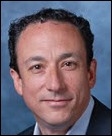Healthcare data sucks - that song turned my Friday to Friyay!!! Gave me the much needed boost to get through…
Health IT from the CIO’s Chair 10/6/14
Hospital technology is not having a good week. First an EMR flaw was identified in the handling of an Ebola patient, and now this.
Hospital says spreadsheet flaw led to overspending
Administrators did not see the analyst’s note in the spreadsheet, officials say10:00AM – October 5, 2014
Officials at UASP Hospital (Unique and Sick Patients Hospital) allege that a flaw in the hospital’s spreadsheet application prevented administrators from seeing negative budget variances, leading the hospital to spend too much money.
Background on the case
On Sunday evening, officials confirmed the case of overspending after an analyst submitted an invoice for payment in a cost center already over budget, setting in motion actions that would have UASP hospital over spend.
The trouble with spreadsheets
According to the hospital, the administrator who approved spending the money followed hospital protocol. Although the analyst had included the information about the negative budget variance in the correct cost spreadsheet tab, the administrator never saw the notation.
"Protocols were followed by both the analyst and administrator. However, we have identified a flaw in the way the administrator and analyst portions of our spreadsheet software interact in this specific case. In our spreadsheets, there are separate administrator and analyst workbook tabs," according to a hospital statement.
"The documentation of spending variances was located in the analyst workflow portion of the spreadsheet, and was designed to provide high reliability analyst process to allow for the spending and approval under administrative pre-approval limits," the statement explains. As a result, "the documentation of spending variances would not automatically appear in the administrator’s standard workflow."
Could your hospital handle financial variances?
The hospital says it has since moved the budget variance into the workflow for both administrators and analysts. It has also modified the spreadsheet to highlight any large expenses when a cost center is close to its budget.
According to the hospital, "We have made this change to increase the visibility and documentation of budget variances in order to alert everyone… We feel this change will improve the early identification of variances in the budget, and bring to our attention any over spending"
While not named, it is well known that Microsoft is a leading vendor in the spreadsheet space and the current vendor of UASP Hospital. Reached for comment, Satya Nadella, CEO of Microsoft. added, "Even more important, we must have courage in the face of opportunity."
Marc Benioff, CEO of Salesforce.com noted on CNBC, "The era of the traditional software ‘load, update and upgrade’ business and technology model is over … It is time for The Business Web"
Note: while I am poking fun at how we can blame technology, the severity of the Ebola disease is no laughing matter. My thought and prayers are with all Ebola patients around the world as well as the courageous caregivers putting their lives at risk every day. There are many ways to help. I have chosen to donate to the Red Cross.

Darren Dworkin is chief information officer at Cedars-Sinai Health System in Los Angeles, CA. You can reach Darren on LinkedIn or follow him on Twitter.

Hahaha! Thank you!
“First an EMR flaw was identified”
Was there actually a flaw identified, or are you making this up?
Where is Ed Marx?????
no flaw in the EMR…just the complexities of delivering care. But, I do think the spreadsheet risk is very real, I’m double checking my formulas!
AC, did the “Unique and Sick Patients Hospital (UASP)” not give it away? Maybe we need some analyst notes to go along with this piece …
To ogmd-
I am sure Ed is sequestered by THR given all the negative publicity they’ve been hit with. I expect we’ll see a full disclosure from Ed as soon as they disinfect and give him back his keyboard.
More likely censored than sequestered. My questions to Ed would be:
– Surely you were consulted when someone decided to blame “EHR workflow” as root of Ebola mishap – clearly this story was making national headlines.
– How did execs think this explanation would withstand scrutiny?
– Did people expect Epic to accept the blame for what were clearly process and people issues?
– Are execs (you?) aware that MDs rarely read RN notes? (long story here)
– Do hospital practice standards include 1) appropriate RN to MD communications and 2) MD H&P appropriate for S&Sx?
Beyond the clinical and IT lessons learned, the industry can learn from how this PR blunder happened – especially with an industry leading CIO at the IT helm.
Honestly, in the scheme of scandals this is a pretty minor bump in the road for THR. A man with a fever came into an ER and wasn’t properly diagnosed with a VERY rare disease in the Dallas region. Should someone or something told the Doctor “this patient was in ebola ravaged West Africa”? Sure, but in the scheme of mistakes this one seems pretty mild.
There was no coke fueled doctor, no massive EHR update where orders didn’t match (and potentially STILL don’t always match), no massive windows update that shut down and wiped 1000s of computers (a form of modern day paper shredding), no shuttles crashed, no meaningful use fraud, no vendor CEO promising a job if things didn’t end well while evaluations were occurring of their system to major players in the industry, and no terminated employees because there were “too many installs” of the other vendors EHR to its ACO. In the scheme of scandals, THR’s is but a bump in the road.
Ed does a good job and THR benefits greatly by having a reliable, accurate, and dependable EHR. Epic is expensive but provides the necessary value for its organization. If it didn’t organizations wouldn’t keep buying it.